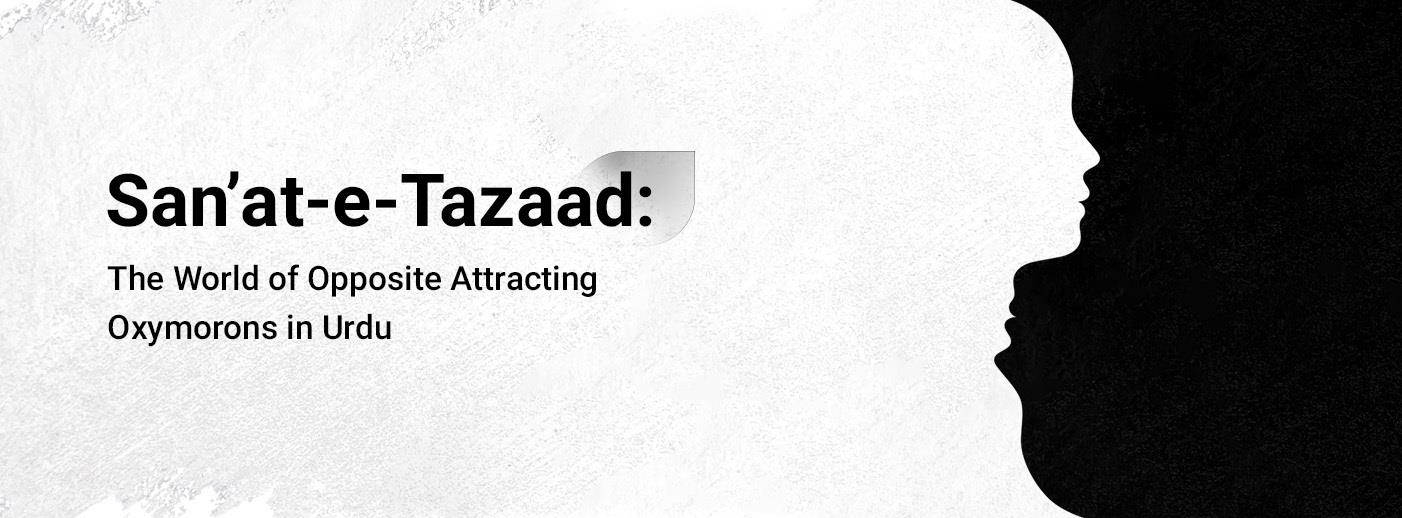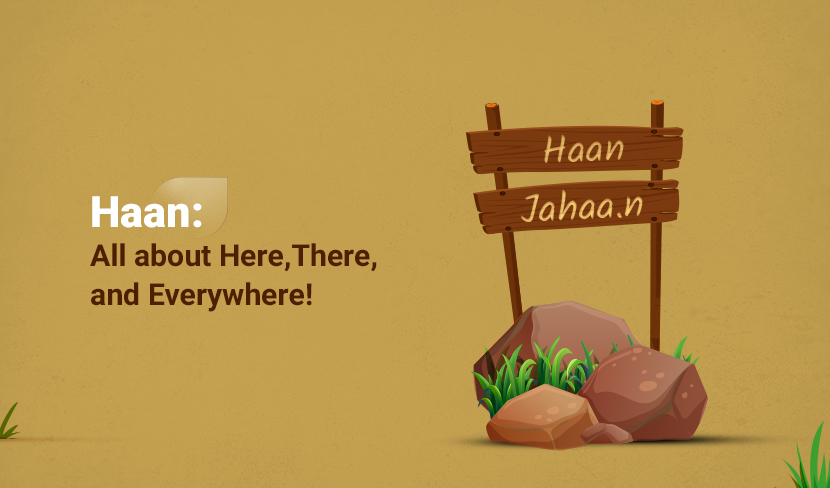Top searched
Saved words
khisyaanii billii khambaa noche
an embarrassed or ashamed person tends to vent his/her feeling by quarrelling
be-niyaaz
without want, free from want, wanting nothing, not in need, able to dispense, independent, carefree
San’at-e-Tazaad: The World of Opposite-Attracting Oxymorons in Urdu

Well, hello there, dear readers! Prepare to be whisked away into the mesmerising world of oxymorons, or as we like to call them in Urdu, san'at-e-tazaad. Now, san'at, is Arabic for ‘figure of speech’, while tazaad, also hailing from Arabic, means ‘paronomasia’ or good ol' ‘wordplay’. And let me tell you, it's a real mind-bending wordplay extravaganza! san'at-e-tazaad is a linguistic marvel where contradictions collide, paradoxes perplex, and opposites attract.
And, today, in this blog, we're going to unravel the enigmatic charm of these intriguing word combinations in the Urdu language. Get ready to have your logic defied and your literary senses tickled!
But why are oxymorons so fascinating, you may wonder? Well, dear reader, they possess a unique power to evoke emotions, provoke thought, and even inject a touch of humor into our everyday conversations. They are the unexpected twists that add spice to our language, reminding us that life itself is a tapestry of contradictions.
From ulti-seedhi to achii-burii, oxymoronic phrases have made a staunch place for themselves in the Urdu speech community. And we have compiled a plethora of oxymoronic gems, ranging from the profound to the whimsical, the poetic to the comical. We shall uncover their hidden meanings, and perhaps even stumble upon some lesser-known treasures along the way.
Let's start with puuraa-KHaalii, a phrase that beautifully emphasizes emptiness. Puuraa means full or complete, while KHaalii means empty. For example, when you say "Ye gilaas puuraa KHaalii hai," you're essentially saying "this glass is completely empty." Quite the paradox, isn't it?
Next up, we have taviil-muKHtasar, an oxymoron that happens to be the name of a genre in Urdu literature. Taviil means long, elevated, or expanded, while muKHtasar means short or in brief. In Urdu literature, a taviil-muKHtasar afasana refers to a long short story. These stories are longer than your usual short stories, adding an intriguing twist to the literary world.
And who can forget bilkul-nahii.n? How many times have you eagerly asked your parents for permission to go and play outside, only to receive a stern "bilkul nahii.n" in response? The first part of this ironic reply, bilkul, means definitely or surely, which momentarily brings joy to any child's heart. However, the second part, nahii.n, meaning no, inevitably breaks our little hearts. Ah, the bittersweet nature of this phrase!
Now, let's delve into some Urdu oxymorons that are commonly used in poems, plays, movie dialogues, and more for their philosophical and poetic essence.
mohabbat ka dushman is a common oxymoronic phrase that has been used extensively in South-Asian popular culture, especially in the late 1990s. Movies, TV shows, plays and even literary works have used the term mohabbat ka dushman (which literally translates to an enemy of love) to signify that someone is against love (that might be brewing between any two individuals).
Another phrase frequently found in literature is KHushii ka Gum, meaning the grief of happiness. This phrase is as painful as it is ironic. Characters with tragic arcs often utter dialogues revolving around this oxymoron, portraying sadness even in moments of joy.
A bit on the philosophical side we have the phrase zindagi kii maut which translates to the death of life. This phrase may find a place for itself in literature and cinema that discuss themes of existentialism, introspection and the search for the purpose of life, for its philosophical existence.
And last on our list, but not in the category by any means, we have KHaamoshii kii guu.nj. This phrase literally means the echo of silence, and is used to create a metaphor to signify the intensity of a profound and intentional silence, as at times, silence can be the loudest answer.
And this was today’s journey on San’at-e-Tazaad, or oxymorons. Hope you enjoyed the twists and turns. We’ll see you soon with another blog soon, until then thoDaa saaraa intezaar kar lijiye.
Delete 44 saved words?
Do you really want to delete these records? This process cannot be undone





